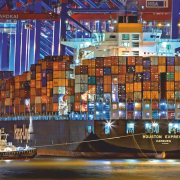Keyword Plastics: Recyclers‘ Pleasures and Pains
At the recent World Recycling Convention & Exhibition of the Bureau of International Recycling (BIR), held in May in Barcelona (Spain), the huge demand for recycled plastics was the focus of the meeting of the world recycling association’s Plastics Committee.
Although plastics recyclers are enjoying the benefits of “massive demand and extremely high prices”, they are struggling to source sufficient feedstock to enable them to cope with this “undoubted boom time”, the global federation of recycling industries cited board member Max Craipeau of Hong Kong-based Greencore Resources Ltd in chairing this meeting. As big brands want to use more recycled content in their products due to circular economy and sustainability, the recyclate market is currently quite tight.
According to BIR, an initiative intended to enhance global flows of quality recycled plastics was described by guest speaker Doug Woodring. The new Rebound Plastic Exchange, for which he is lead expert, “is scheduled to go live in late August” and will seek to serve as a transparent global trading platform aimed at facilitating movements of bales, pellets and flakes based on “certification, verification and trust”. By implementing standardized facility inspection protocols and using well-known, global certification bodies, the exchange would look to build confidence in this trade, he pointed out. At the same time it would drive the innovation and investment required to boost circularity and propel the current global plastics recycling rate beyond its lowly 10 percent.
Identifying lack of feedstock as the main challenge, Doug Woodring contended that investment of 56 billion US-Dollar is required in the plastics processing infrastructure over the next five years, rising to 400 billion US-Dollar by 2040. “Many, many big brands now finally are trying to get more recycled content into their products,” he was quoted by the world recycling association. As reported, this is proving to be “a giant challenge” because the necessary supply chains were not in place and “you cannot find the feedstock”. According to the guest speaker, the market for recycled material is forecast to grow around 30 percent from 2020 levels to 45.6 billion US-Dollar by 2025. “This is a very great opportunity for those of you in the recycling industry,” he declared, cited by BIR. But until the necessary infrastructure investments had been made, the annual shortfall of recycled material would be a minimum of six million tons.
Dr Steve Wong of Fukutomi Recycling Limited, who is also Executive President of the China Sustainable Plastics Association, identified an urgent need for more investment in the upstream collection, sorting, grinding and washing infrastructure. In the Far East, he maintained, “most factories operate at less than 20 percent of their capacities”. Noting the Rebound Plastic Exchange’s focus on achieving consistency in inspection and quality, Sally Houghton of The Plastic Recycling Corporation of California insisted: “We need standardization at the collection level as well.” And Natalia Cruz of Spain-based Ferromolins SL welcomed the exchange initiative as “a very useful tool” for all of those businesses involved in the search for solutions to circular economy challenges. On the issue of supply, Max Craipeau also identified hugely increased shipping costs as “really restricting the flow of material globally”, BIR reported.
Whereas a 40-foot container heading from Asia to Europe or the USA two years ago would have cost around 2,500 US-Dollar, the outlay was now nearer 15,000 US-Dollar. Among the other pressures on the plastics recycling sector, he listed the impacts of the Ukraine conflict, high energy prices, inflation and lack of labor.
(Published in GLOBAL RECYCLING Magazine 2/2022, Page 3, Photo: TOMRA)








